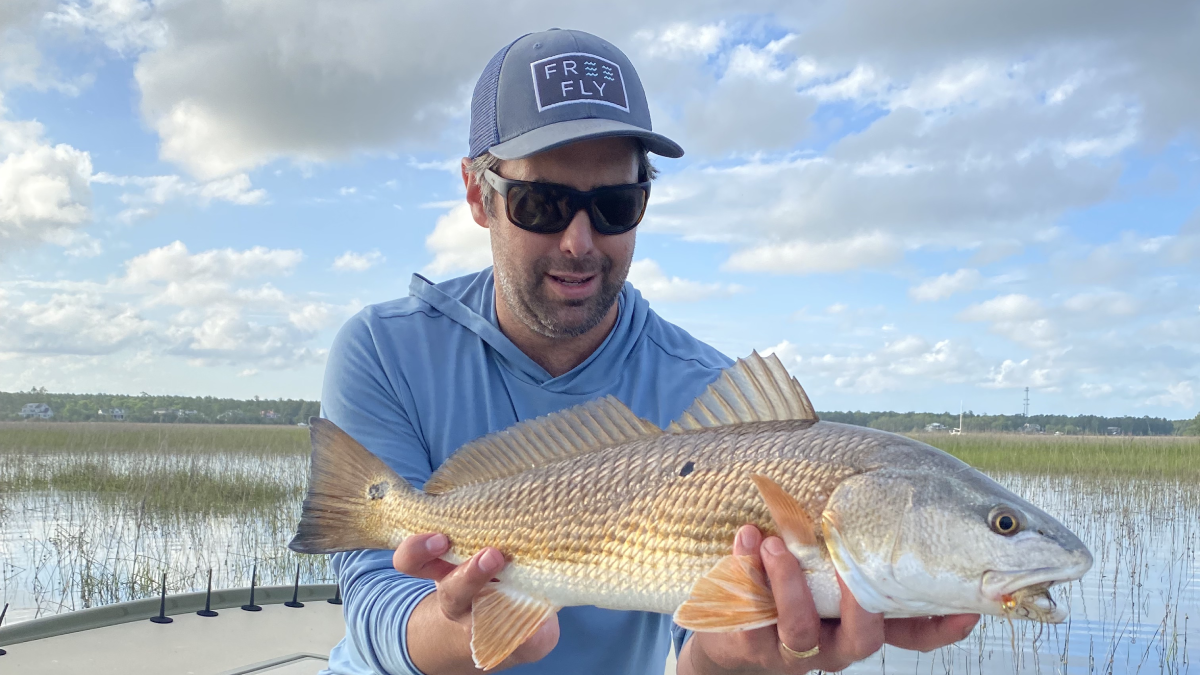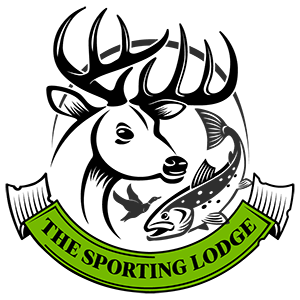Behind the Brand: An Interview with Free Fly Founder Tanner Sutton

We may earn revenue from the products available on this page and participate in affiliate programs. Learn more ›
We take our gear seriously at F&S, whether it be for hunting, fishing, or camping. Our selections are based on many factors, like quality, price, and purpose—just to name a few. But sometimes there’s more to a fishing jacket or hunting knife than what you see.
Through my years of covering the best outdoor gear, I’ve discovered some really cool brands with some really cool stories doing some really cool things. In our new “Behind the Brand” interview series, we are telling those stories through the words of the founders themselves.
Our first conversation in the series is with Tanner Sutton, the founder and current co-owner of Free Fly, a Charleston-based company known for its performance apparel made of a unique (and super comfortable) bamboo fabric. Sutton opened up about his love for fly fishing, and how guiding on the Missouri River turned into printing T-shirts in his bedroom—and how that grassroots operation became the brand we know and love today.
Sutton fly fishing in his home state of Montana. (Photo/Free Fly)
Field & Stream: Take us all the way back to the beginning. Where did the idea for Free Fly come from?
Tanner Sutton: I grew up in Montana, where my folks had a clothing company that specialized in custom artwork for resorts and national parks around the country. Coming from an entrepreneurial family, I had every bad job imaginable, from printing T-shirts to washing screens and all that fun stuff.
College is when I really started getting serious (and excited) about fly fishing. During my last two years of school, I was guiding on the Missouri River, which is where I grew up fly fishing but had played too many sports to really chase it. My uncle had a lodge in Ruby Springs and I guided for him for a handful of seasons, even after I graduated. But eventually it got to the point where I needed to grow up and get a real job.
Sutton at the place where it all began: the river bank. (Photo/Free Fly)
So how did that turn into Free Fly?
I can remember the light bulb moment for Free Fly pretty vividly. It was the end of a particularly great day of fishing on the lower stretch of the Missouri River. I was wearing a pretty gross salmon-colored button-down shirt. While I had an awesome day of fishing, I thought to myself, man this stinky sweaty overbuilt shirt is preventing me from doing what I love.
I knew there had to be a better way. I believed there was a way to provide clothing that enhanced outdoor experiences like that instead of taking away from them.
So that’s really where Free Fly began: on a drift bank in Montana.
And what happened next?
In 2010, I moved down to Charleston, South Carolina when my folks sold their business and moved to Hilton Head. I was an independent sales rep for some not-very-exciting clothing brands just to pay the bills. On the side, I spent about two years doing R&D on fabrics and patterns. That led up to the beginning stages of launching the brand.
What were those early days like?
In the beginning, we were just going to fly shops and outdoor shops and giving them a really low minimum to put their logo on apparel. So it was myself and a college intern literally printing T-shirts in my bedroom and folding them on my bed. It was our way to get into stores.
It took a long time and a lot of people who were not myself getting us to where we are today. It started off very grassroots and humble with no high expectations.
A lot of research went into choosing the right material for the brand. (Photo/Free Fly)
At that point, were you expecting Free Fly to grow into what it is today?
No, not at all. Growing up throughout high school and college, I had a lot of failed business ideas. Because my parents had a clothing business, I had a way to get blank T-shirts and get them printed so I’d just mess around and try to sell stuff online.
The idea for Free Fly felt like it had legs but it truly was out of my bedroom. I had a little T-shirt printer in my room that I would do custom stuff with after we landed on our blend of bamboo polyester fabric (which is still our best-seller today).
What was the first product you released?
We started off with the Bamboo Lightweight Long-Sleeve Shirt for men, followed by a short-sleeve and a 1/4-zip, and then a variety of hats and T-shirts. But what took years to develop was the fabric. Throughout the whole process, I played with so many different material blends.
I’d get samples in black, which is not the most friendly color for summer time in the south. Then I’d go on runs or go to a hot yoga class or give it to a buddy who was a fly fishing guide. I would just test everything imaginable.
The Free Fly Bamboo Lightweight Long-Sleeve was the brand’s first release. (Photo/Free Fly)
So what fabric did you end up choosing?
Eventually we found this one fabric that’s a custom blend of 70 percent viscose from bamboo and 30 percent polyester. It was the perfect blend of super soft and comfortable but also moisture-wicking and thermal-regulating. That was the fabric we went to market with.
I hit the road and went to a bunch of consumer shows for the first year and a half or two to just check the market appetite. I was fortunate enough to pick up some sales reps and start getting our product online and selling it on our website.
What’s so special about bamboo?
Well, to start, the feel of the fabric just stops you in your tracks when you’re at the store. But the performance is the real magic behind it. It dries incredibly quick and it’s thermal-regulating, so when you’re cold, it will warm you up and vice versa when you’re hot. It’s also odor-resistant.
Most importantly, though, it has sun protection. That’s incredibly important to us, being based in the southeast. We don’t treat our products with anything but our blend of bamboo has that natural sun protection built into it.
From a style standpoint, we try to build our pieces really simple and timeless without a lot of bells and whistles and let the fabric be the true story.
Simplicity and comfort are two of Free Fly’s biggest values. (Photo/Free Fly)
Is Free Fly just for people who fish?
Not at all. Sure, our background is in fly fishing. But in the first four or five years, we heard from so many people that they not only loved to fish in our stuff but also hike, paddle, or do yoga in it. So we kind of organically turned into more of an outdoor active brand. It’s for everyone from the hardcore athlete to the average weekend warrior like most of us are.
What are your favorite Free Fly products right now?
It’s hard to go away from our OG hoodie. I remember my brother-in-law (who’s one of my partners in the business) we were playing with fabric in his office one day and we literally safety-pinned this crossover hood construction. It looked so funny but it ended up being the thing that sets this hoodie apart.
Because of the crossover neck, you don’t have to wear a buff when you’re outside which is really nice. Plus it has thumbholes. In my mind, it’s just the lightest weight and most comfortable hoodie on the market.
Bamboo-Lined Active Breeze Shorts
The Breeze collection is our most popular in terms of bottoms and the Active line is new for this spring. I’ve just been living in these. They have a great bamboo liner and really soft and stretchy exterior if you want to go run or do anything active.
They’re just the best underwear that I own. I’m a little biased, of course, but they’re super comfortable.
On the theme of favorites, where is your favorite place to fly fish?
It’s really hard for me to go away from Montana. I’ve lived in Charleston for 15 years and I love everything about the saltwater but something always takes me back home. There are some really cool small pieces of water in Montana that I’ve been fortunate enough to fish.
Spring creeks, rising trout, throwing dry flies—nothing beats that for me.
The post Behind the Brand: An Interview with Free Fly Founder Tanner Sutton appeared first on Field & Stream.
Articles may contain affiliate links which enable us to share in the revenue of any purchases made.
